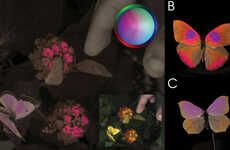
Special REMUS SharkCam Becomes the Hunted in Creepy Footage
Meghan Young — August 5, 2014 — Tech
References: whoi.edu & designtaxi
If a person is at all interested in watching shark attack videos, perhaps they can start with this one. Although still creepy, instead of involving a real-life person or animal, it focuses on the special camera that was submerged underwater to capture the ferocious sea creatures. Dubbed the REMUS SharkCam, it takes on the form of a torpedo. Hence, its menacing presence warrants a territorial attack for the great white sharks.
The shark attack video footage captured close-up views of the shark attacking and biting the torpedo in swift motions. Since the REMUS SharkCam was outfitted with six cameras, it really shows how deadly a shark in action can be. This shark attack video is released in time to celebrate Shark Week.
The shark attack video footage captured close-up views of the shark attacking and biting the torpedo in swift motions. Since the REMUS SharkCam was outfitted with six cameras, it really shows how deadly a shark in action can be. This shark attack video is released in time to celebrate Shark Week.
Trend Themes
1. Underwater Cameras - Developing more advanced underwater cameras that can withstand shark attacks presents an opportunity for innovation in underwater exploration and wildlife conservation.
2. Virtual Reality Shark Experiences - Using virtual reality technology to create immersive and educational experiences for people to learn about sharks and their behavior could be a promising business opportunity for tourism and entertainment industries.
3. Drone Surveillance - Developing drone technology that can perform surveillance of shark populations and their behavior could present opportunities for data collection and analysis, as well as wildlife conservation efforts.
Industry Implications
1. Underwater Technology - The underwater technology industry could focus on developing advanced cameras and equipment that can better withstand marine wildlife attacks, creating a safer environment for researchers and increasing the quality of data collected.
2. Tourism - The tourism industry could capitalize on virtual reality technology to create immersive experiences for individuals to safely learn about and appreciate shark populations while also boosting their business through increased tourism.
3. Wildlife Conservation - The wildlife conservation industry could utilize drone technology to effectively monitor shark populations and track their behavior for research and conservation efforts, leading to more comprehensive and successful conservation programs.
5.9
Score
Popularity
Activity
Freshness























